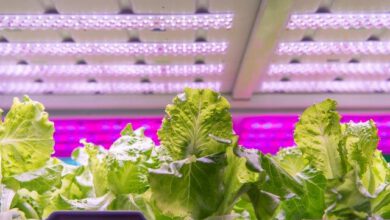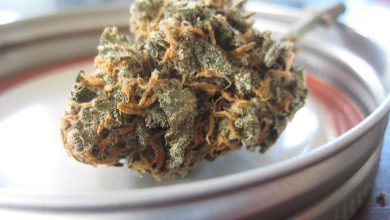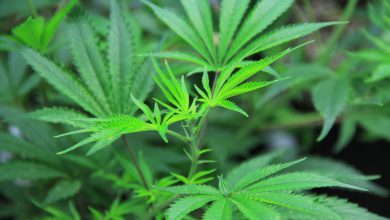The Benefits of Incorporating Mycorrhizal Fungi in Cannabis Cultivation
One of the ways to increase yields is by the application of plant growth-promoting microbes such as mycorrhizal fungi
By Tomer Keshet, Ari Singer and Danny Levy danny@groundworkbioag.com
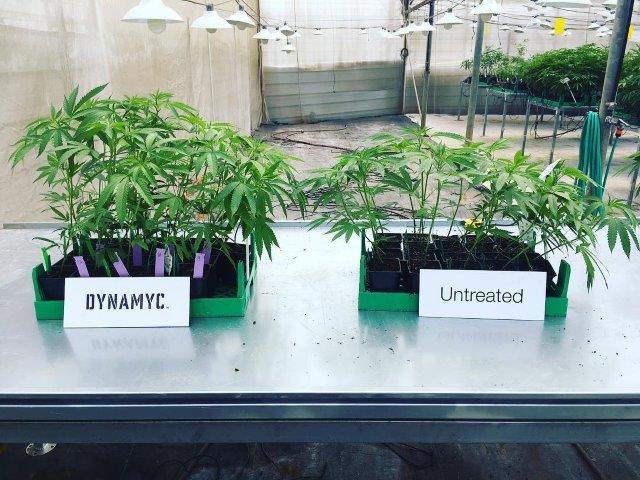
dynamyc™ is a groundbreaking mycorrhizal inoculant developed by groundwork bioag, specifically formulated for cannabis growers. it acts as a biofertilizer by absorbing mineral nutrients from the soil and translocating them into the plant’s roots. dynamyc™ is highly concentrated with unique and vigorous strains of endomycorrhizal fungi (amf), designed to help medical cannabis cultivators reach their plant’s full potential in terms of yield and cannabinoid levels.
the global cannabis market is dynamic. as of today, 34 states in the usa have legalized cannabis for medical use, and 11 states have legalized its recreational use. a study by steigerwald et al.shows that 14% of us adults used cannabis during 2017. the study also showed a positive correlation between cannabis legalization and the number of cannabis consumers1. marking the way forward, uruguay and canada went the furthest by legalizing the use of cannabis for recreational purposes nationwide.
moreover, many other countries around the world have, by now, legalized the medical use of cannabis, including australia, finland, and israel. with a paradigm shift in public perception, an increase of interest in the plant’s medicinal properties by leading pharmaceutical companies, higher rates of decriminalization and deregulation, one can conservatively predict an increase in cannabis consumption, thus creating a growing incentive for farmers to maximize yields and productivity in order to meet future demand2. one of the ways to increase yields is by the application of plant growth-promoting microbes such as mycorrhizal fungi.
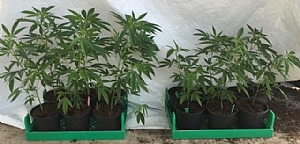
figure 1: cannabis plants of black label cultivar 4 weeks post-treatment. left: dynamyc™-treated group. plants were treated with five grams of dynamyc™ per plant. right: control group.
mycorrhizal fungi form a symbiotic and mutualistic relationship with plant roots. the fungusprovides essential nutrients to the plant, such as phosphorus and nitrogen, and the plant, in return, provides carbohydrates as food to the fungus.the vast majority of mycorrhizae are classified into two categories: ectomycorrhizae (ecm) and endomycorrhizae (amf). the main differences between the two types are that ecm hyphae do not penetrate plant cells, whereas amf hyphae do. as facultative biotrophs, ecm do not rely only on plants to survive and reproduce and are better equipped to support trees and woody plants. amf, on the other hand, do penetrate plant cells and form structures called vesicles and arbuscules.
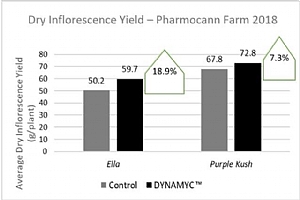
figure 2: dry inflorescence yield results of ella and purple kush cultivars treated with dynamyc™, vs. a control group. plants were grown for 95 days in 10 l pots. dynamyc™ -treated plants increased yield by 18.9% and 7.3% in ella and purple kush cultivars, respectively, compared to untreated plants.
they are obligate biotrophs, so they must have a host plants in order to grow and reproduce. amf are generalists, and form connections with a wide variety of plants (approximately 80% of land plant species)3. since over 90% of plants form associations with mycorrhizal fungi, the absence of mycorrhizae in plant roots may even be regarded as unnatural. therefore, reintegrating mycorrhizae back into the rhizosphere holds potential to enhancing cannabis agronomics.
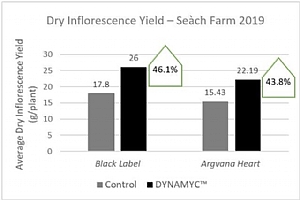
figure 3: dry inflorescence yield results of black label and argvana heart cultivars treated with dynamyc™, vs. a control group. plants were grown for 95 days in 3 l pots. dynamyc™ increased yield by 43.8% and 46.1% in argvana heart and black label cultivars respectively, compared to a control group.
the benefits of amf root colonization are extensive. amf act as biofertilizers by increasing the uptake of phosphorous, ammonium, and immobile micronutrients such as cu and zn4. they also behave as bioprotectors, inducing tolerance to environmental stresses such as drought and salinity. additionally, amf function as bioregulators, stimulating changes in the plant’s phytohormonal profile to influence plant development. an amf colonized plant may display an increase in shoot and root biomass as well as a higher net photosynthetic rate which can, in turn, increase crop yield.
in order to test our product, trials were conducted in collaboration with pharmocann and seàch farms during the summer of 2018 and winter of 2019, respectively. at pharmocann farm, the cultivars tested were ella and purple kush, in which ten replications of each cultivar (n=10) were analyzed. plants were treated with dynamyc™ at two stages: first, upon clone transplantation into 750 ml pots, and later upon transplantation into 10 l pots. five grams of dynamyc™ were applied at the first transplantation, and ten grams at the second.
at seàch farm, the two cannabis cultivars tested were black label and argvana heart, in which twelve replications of each cultivar (n=12) were analyzed. these plants were also treated with dynamyc™ at two stages: first, at clone transplantation into 750 ml pots, and later upon transplantation into 3 l pots (figure 1). five grams of dynamyc™ were applied at the first transplantation, and three grams at the second.
the parameters measured were (1)stem width, (2) shoot height, and (3) total dry inflorescence yield per treatment group after twelve weeks of growth. t-test statistical analysis was used to analyze the results. in the first trial, we observed an 18.9% and a 7.3% dry inflorescence yield increases in ella and
purple kush cultivars, respectively, compared to the control group (figure 2). in the second trial, the dry inflorescence yield increased by 43.8% in argvana heart and by 46.1% in black label, compared to the control group (figure 3). we found an 8.3% (p=0.034) and 10% (p=0.018) increases in shoot height, and 12% (p=0.02) and 15% (p=0.021) increases in stem width in argvana heart and black label cultivars respectively, compared to the control group.
* in statistics ‘p’ stands for p-value. in general, if the p-value is smaller than 0.05 then differences between groups are statistically significant.
dynamyc™ contains two high-performing vigorous strains of amf: glomusintraradices (a.k.a. rhizophagusintraradices) and glomusmosseae (a.k.a. funneliformismosseae) in a total of 900 propagules per gram. groundwork bioag’s pioneering production methods and innovative inoculants are based on over 30 years of scientific research which originated in israel’s volcani center for
agricultural research (aro). groundwork bioag delivers highly effective mycorrhizal inoculants to commercial agriculture markets worldwide. dynamyc™ is the result of extensive research, including bioassays over numerous cannabis cultivars and strains of mycorrhizal fungi in order to achieve the most robust and versatile combination of fungal strains specifically formulated for cannabis growers.
with exceptional trial results and endorsement of our product by opinion leaders in the industry, we believe that dynamyc™ is poised to become a major input for cannabis cultivation worldwide.
this article is part of #2 edition cannabis 2020

